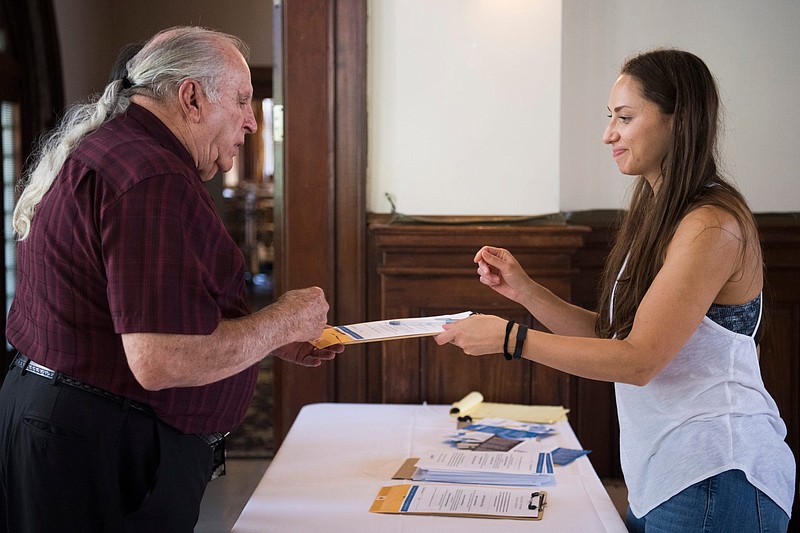NASHVILLE - A federal judge in Nashville said in a hearing Wednesday that he sees "serious constitutional issues" with Tennessee's new law barring online-ordained ministers from officiating marriages.
The law was supposed to go into effect July 1. But the Universal Life Church Monastery and three of its ordained ministers, including one from Chattanooga, sued the state seeking to block the law from taking effect.
(READ MORE: State defends Tennessee ban on internet-ordained ministers performing marriages)
They say the law violates the U.S. and Tennessee Constitutions by burdening ULCM and its members' free exercise of religion and speech. ULCM offers free ordinations on its website.
During Wednesday's hearing, U.S. District Court Judge Waverly Crenshaw, who previously issued a temporary restraining order keeping the new law from being enforced, questioned the "rational basis" of the statute and how it is intended to ensure the institution of marriage.
Crenshaw, chief judge of the U.S. District Court for the Middle District of Tennessee, ordered the state to maintain the existing legal status quo while also telling attorneys for ULCM and the Tennessee Attorney General's Office that he wants them to move quickly with filings because he wants the lawsuit tried in late fall.
Earlier, in a response to Crenshaw's question about what the state's rational basis is for targeting the online ordination process, State Assistant Solicitor General Jonathan Shaub said under U.S. Supreme Court rulings states have "absolute authority" in several areas involving marriage.
Shaub said changes to existing law were warranted to maintain the integrity of marriage and deter fraud.
Crenshaw, who spent most of his time questioning the state's attorneys, seemed skeptical of a number of their arguments.
Bruce Johnson, an attorney for Seattle-based ULCM, said after the hearing that he wasn't particularly impressed by arguments offered up by the state, quipping, "we sort of call this the dog ate my homework."
A number of ministers ordained by ULCM and American Marriage Ministries say they perform an important function, especially in the LGBTQ community where they say couples can have problems finding ministers from traditional denominations to perform a ceremony.
Watching the proceedings along with his husband was Gabriel Biser, of Chattanooga, a ULMC-ordained minister who is a plaintiff in the case.
Biser, who moved from California to Chattanooga several years ago, said he got ordained by ULCM back in 2015 and has since performed several ceremonies for friends.
He was critical of the state's arguments, including that persons wishing to get ordained by the ULCM can do so with the "click of a mouse" on a computer.
"We needed the deliberate decision to do this," said Biser, adding he takes presiding over marriages seriously.
The suit also names four of Tennessee's county clerks, who are tasked by law with issuing marriage licenses. Among them is Hamilton County Clerk Bill Knowles who was represented in Wednesday's hearing by a local attorney.
Contact Andy Sher at asher@timesfreepress.com or 615-255-0550. Follow him on Twitter @AndySher1.
